The Best OTC Products to Effectively Treat Eczema on Your Face
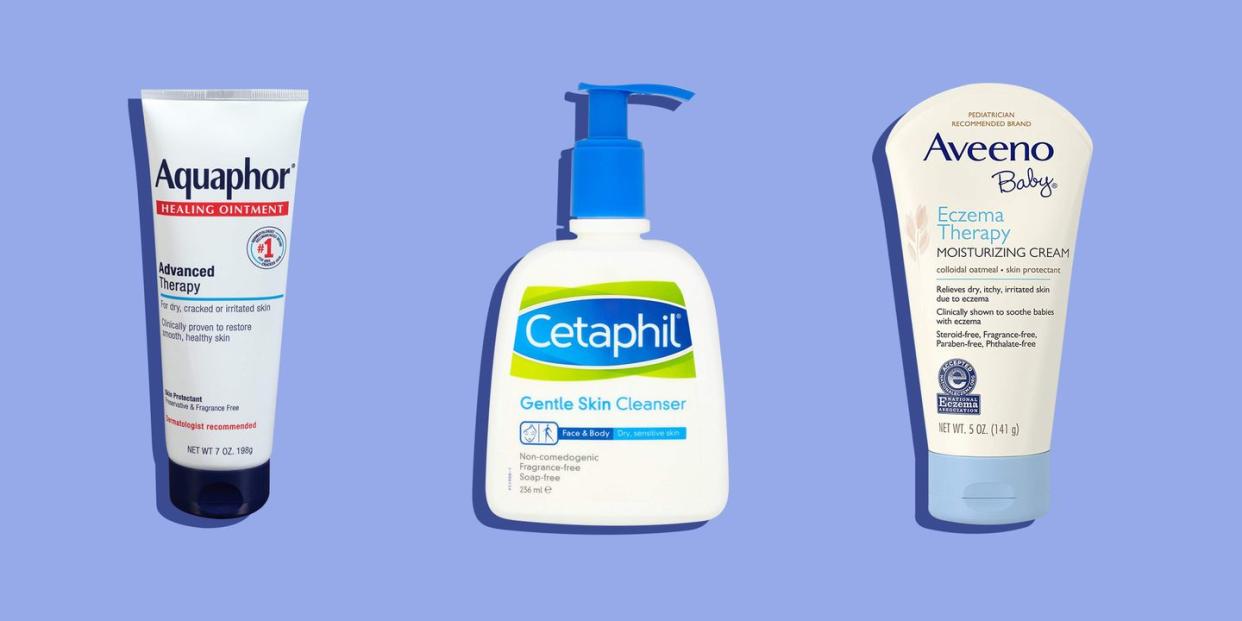
No one wants the dry, itchy skin that comes along with eczema-but it’s even less welcome on your face. For starters, there’s no hiding it! While you may think of eczema as one health condition, it’s actually an umbrella term for a cluster of similar skin diseases that cause your skin to become itchy, red, and swollen. More than 31 million people deal with some form of eczema in the United States, according to the National Eczema Association.
The skin on your face is much more delicate than the skin on your body, so it requires more care and extra gentle ingredients. But to treat the problem, you need to establish that your dry skin is indeed facial eczema and not, well, regular ol’ dry skin.
Here, dermatologists explain how to tell if you have eczema on your face, what may be causing it, and the affordable over-the-counter products that can help you treat it ASAP.
How to tell if you have eczema on your face
It can be tricky to distinguish the difference between eczema and dry skin-both are dry, both can be itchy, and both can be irritated with harsh products.
The key difference? “Eczema usually flares up as patches in specific areas, like around your eyes or nose,” says Marina Peredo, MD, an associate clinical professor of dermatology at Mount Sinai Hospital in New York City. “On the body, eczema often surfaces in the creases of your arms or knees.”
Other telltale signs of eczema include swelling, redness, and flakes. Or, as Dr. Peredo puts it: “Eczema looks angrier.” (See pictures of different types of eczema here.)
What causes eczema on your face?
There are different types of eczema, according to the National Eczema Foundation, including ones you might find on your face:
Atopic dermatitis may show up on the cheeks and come along with asthma and/or hay fever
Contact dermatitis is associated with a specific allergen, like a harsh detergent or fragrance your body doesn’t like
Seborrheic dermatitis is common on the nose and scalp and linked to a yeast.
Experts aren’t 100 percent sure what causes eczema at its root, but it likely starts with a genetic predisposition and is then triggered by things like cold weather, hot showers, bacteria, stress, yeast, and hormonal changes (that’s why people sometimes experience flare-ups during pregnancy).
How to treat eczema on your face
“It’s common and generally safe to treat body eczema with topical steroids, but you need to be careful applying the same products to your face,” says Kenneth Mark, MD, a dermatologist practicing in New York City and Aspen, CO. “Steroids can thin your skin if used improperly.”
That’s why it’s important to start with more mild, moisturizing products, then go from there. “The goal is to restore the barrier function of your skin without causing more irritation,” Dr. Mark says.
One extra challenge when treating facial eczema: You probably use a lot of products on your face that you don’t use on your body, and some of those products aren’t the best choice when tackling a flare-up. “Avoid any potentially irritating products (like retinoids and glycolic acid) that can increase inflammation,” Dr. Mark says.
We love reducing wrinkles, dark spots, and saggy skin just as much as anyone else, but eliminating facial eczema should be your number one priority. “Eczema is a medical condition that can turn into an infection if untreated,” Dr. Peredo says.
Ready for your super approachable treatment plan? Keep your routine simple and hold off on makeup during a flare-up-no eye shadow if you have eczema around your eyes or lip stains if it’s on your lips. After taking a lukewarm shower (hot water will dry out your skin even further), apply a fragrance-free moisturizer as soon as you dry off when your skin will absorb it better, Dr. Peredo says.
Start with these products, then see a doctor if you’re still experiencing flare-ups in four weeks. Any time you decide to try a new product, do a patch test. Apply a pea-sized amount to your wrist and monitor it for any allergic reaction after 24 hours.
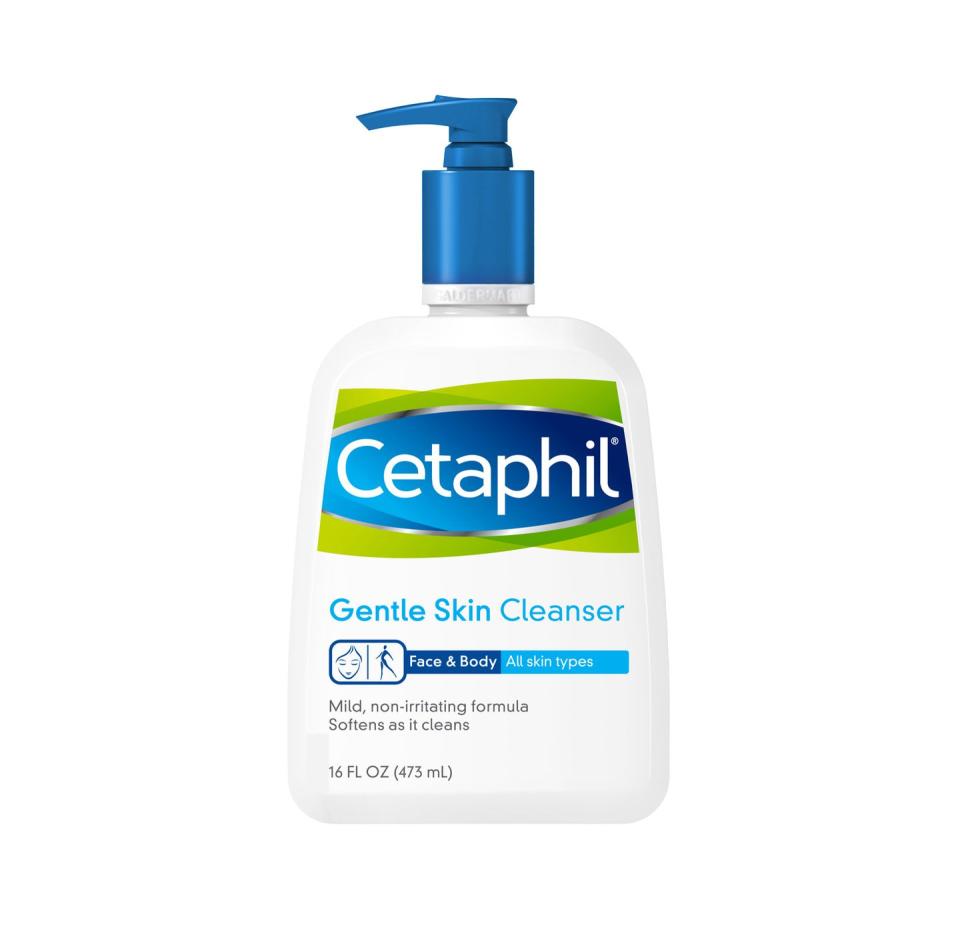
Cetaphil Gentle Skin Cleanser
Dr. Peredo emphasizes the importance of avoiding scrubs and other harsh cleansers if you have eczema on our face. This face wash from Cetaphil is just about as mild as it gets. It’s free of fragrances, hypoallergenic, and noncomedogenic, so it won’t clog your pores or irritate your skin.
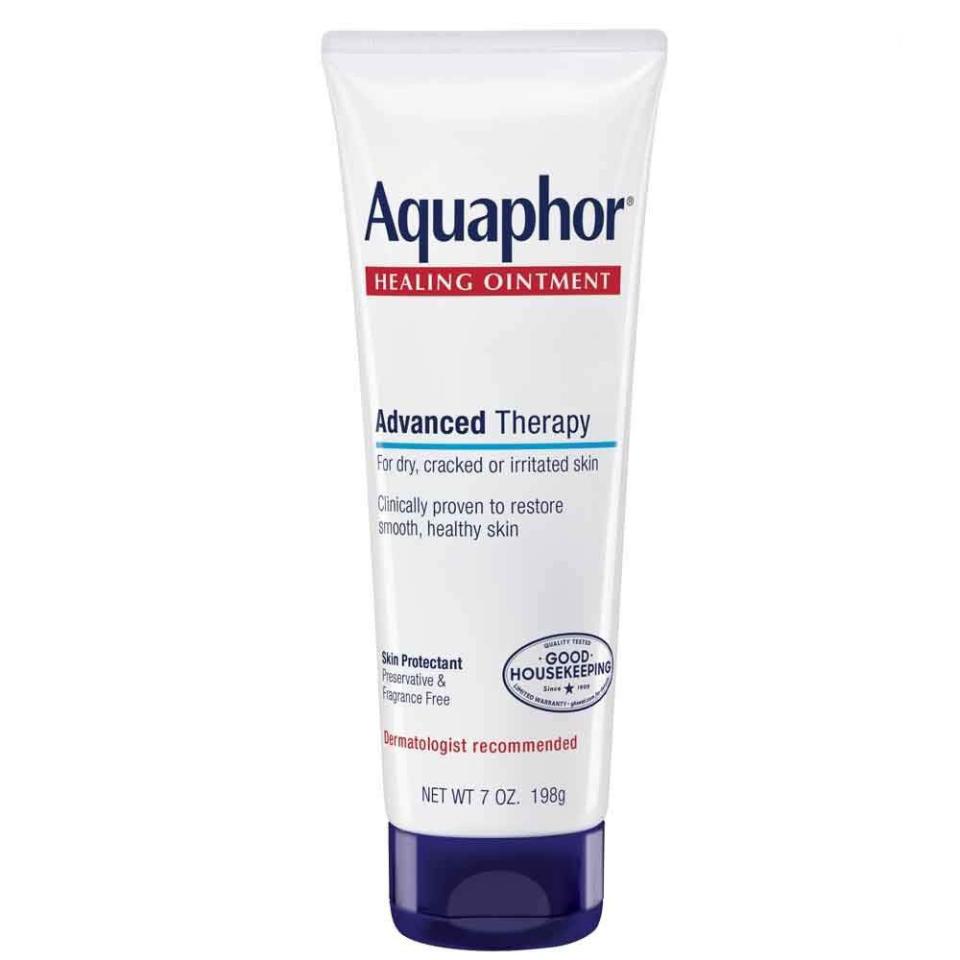
Aquaphor Healing Ointment
Dr. Peredo recommends a petrolatum-based cream for the ingredient’s healing properties. This ointment from Aquaphor is 41 percent petrolatum, includes glycerin for extra moisture, and is super affordable.
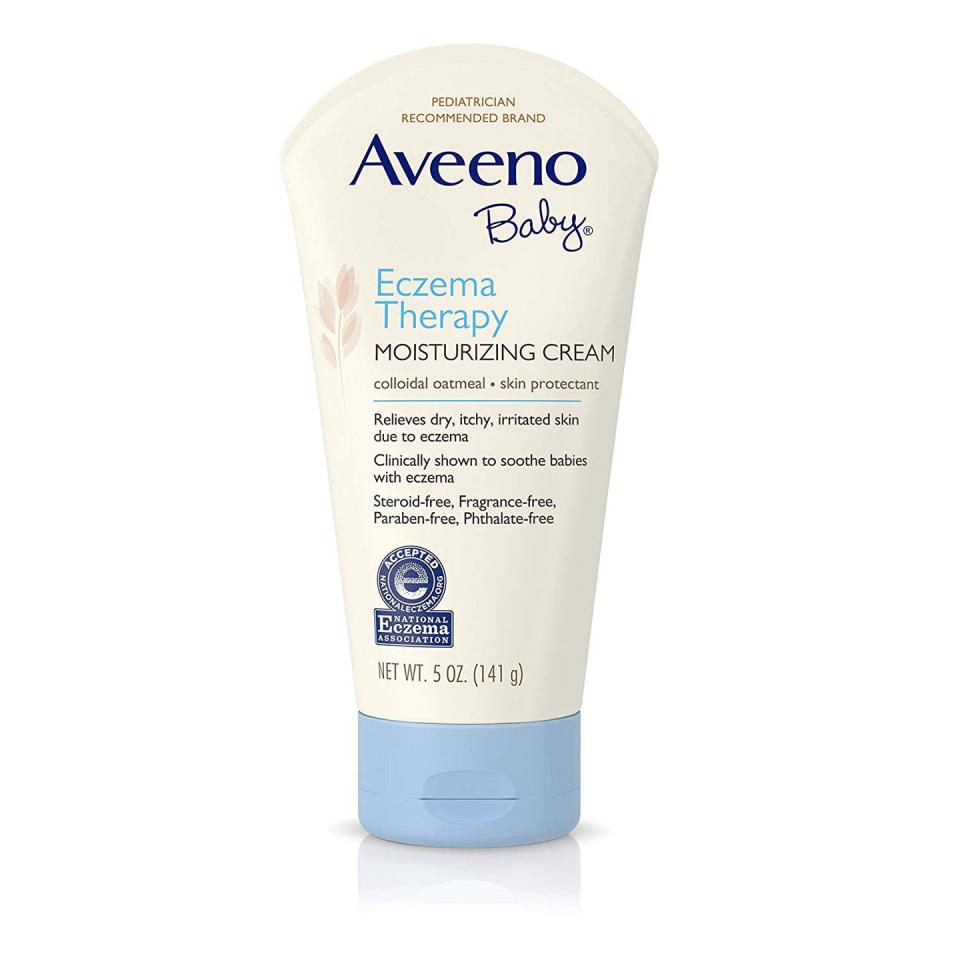
Aveeno Baby Eczema Therapy Moisturizing Cream
Is this eczema cream made for babies? Yes. Will we tell anyone that you, a grown woman, used it? No. This formula includes petrolatum, but the star ingredient is colloidal oatmeal, which can help soothe the itching associated with eczema, research shows.
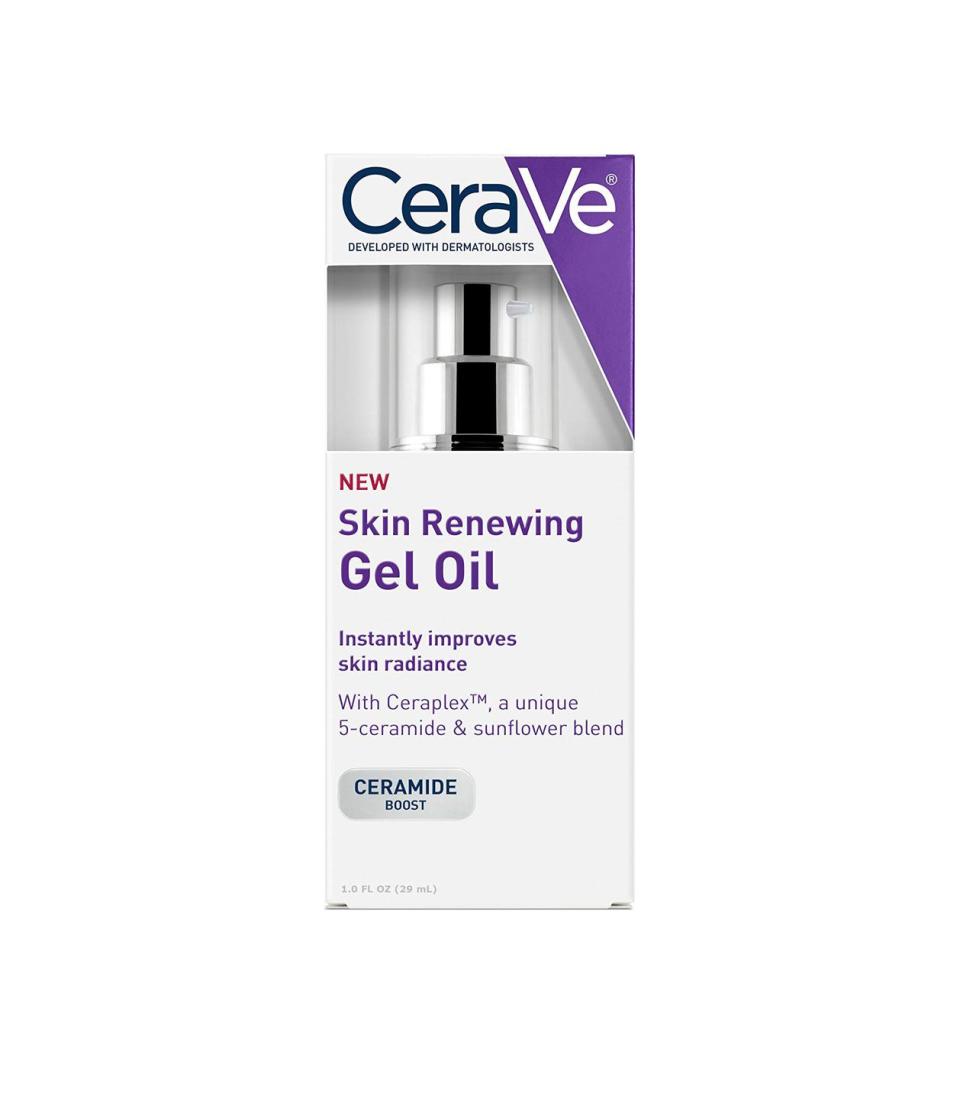
CeraVe Skin Renewing Gel Oil
The National Eczema Association suggests using a moisturizer that contains a high concentration of oil, like this one from CeraVe, to hydrate and protect the skin barrier. We like this fragrance-free, noncomedogenic gel because it offers a heavy hit of moisture while maintaining a lightweight feel.
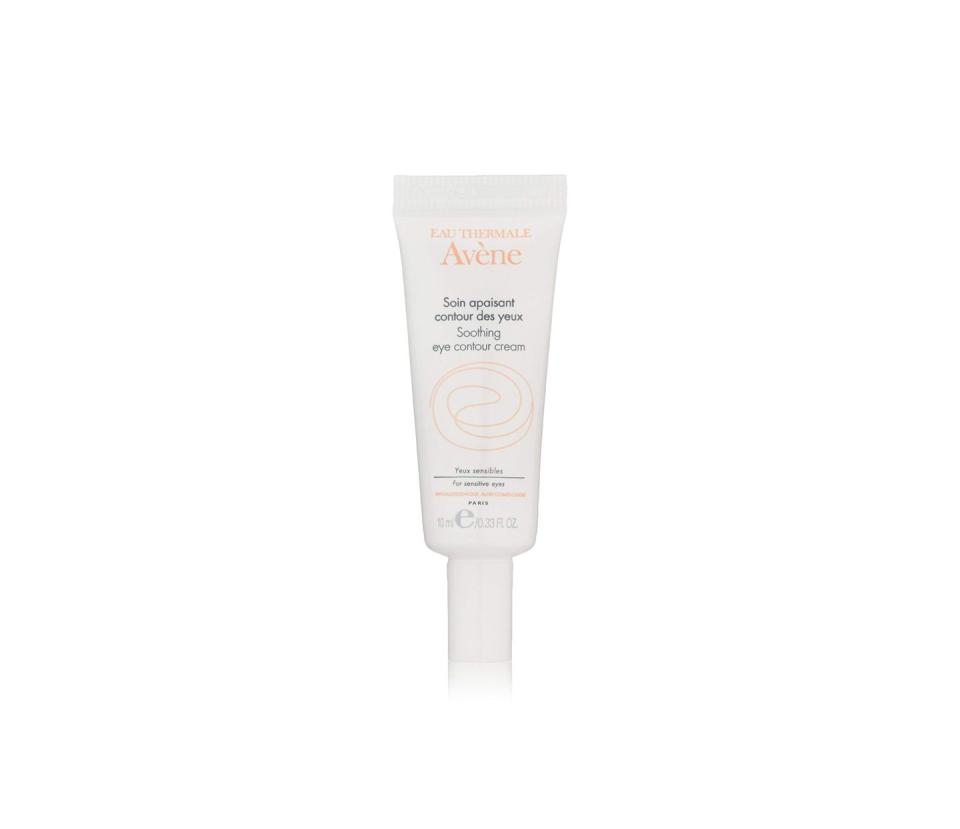
Avène Soothing Eye Contour Cream
People travel the world to visit Avène’s thermal springs in the south of France, known for having minerals that relieve skin conditions like rosacea, psoriasis, and eczema. You’ll find the thermal water in this eye cream (also named in Prevention’s favorite hydrating eye creams). What’s more, it’s formulated with hyaluronic acid, an ingredient that attracts water to the skin and locks in moisture.
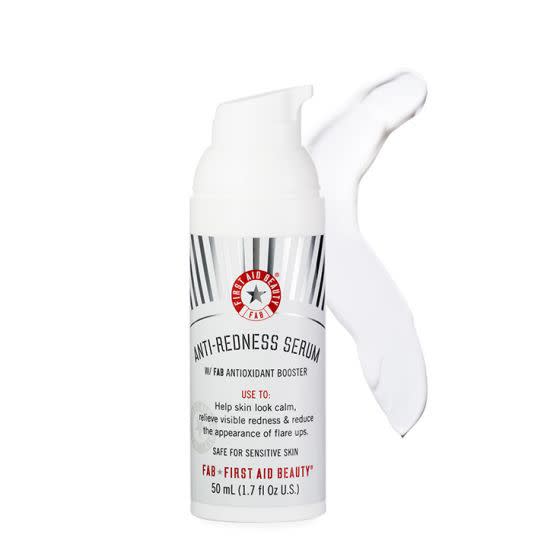
First Aid Beauty Anti-Redness Serum
Dr. Mark suggests trying sulfur-based product to reduce inflammation and kill bacteria, which you can find in this redness-reducing serum from First Aid Beauty. It also includes aloe vera to soothe the skin.
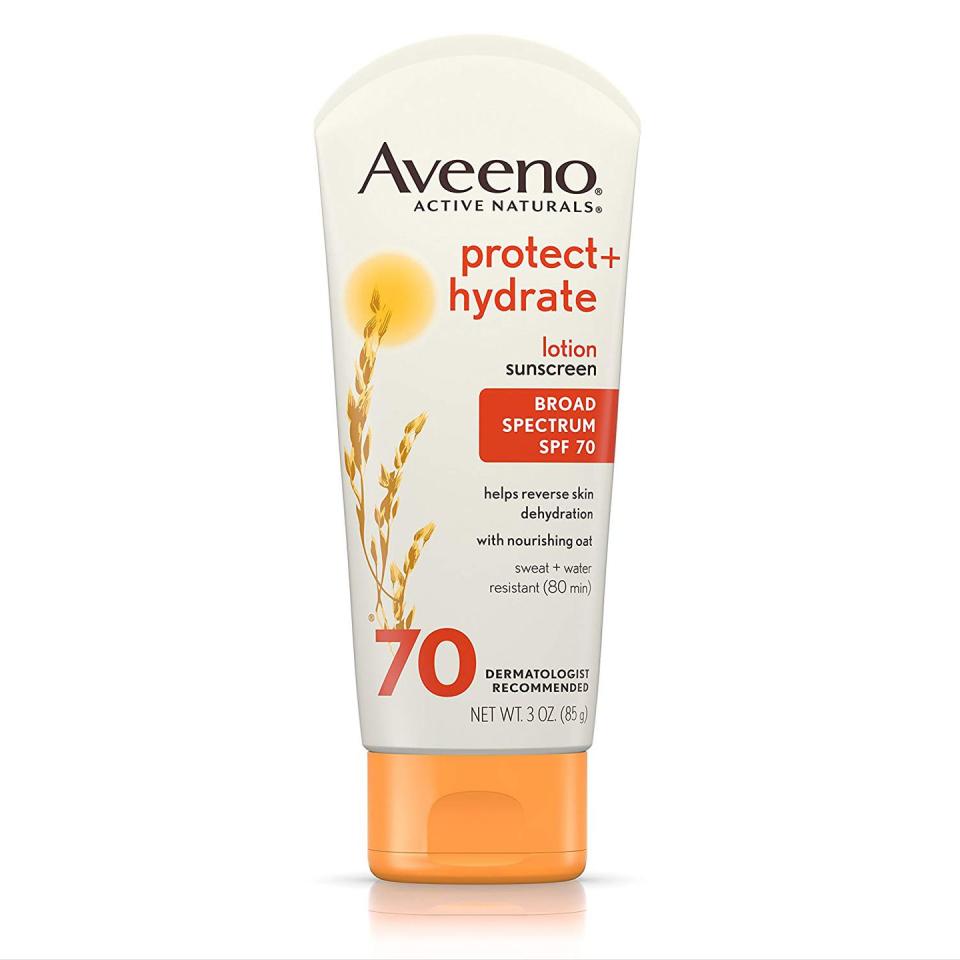
Aveeno Protect + Hydrate Lotion Sunscreen SPF 70
Protecting your skin from the sun’s harmful UV rays becomes even more important when you’re dealing with eczema on your face. This pick from Aveeno (which was also named one of our best sunscreens of the year) includes colloidal oatmeal to hydrate, soothe, and protect the skin barrier.
('You Might Also Like',)

